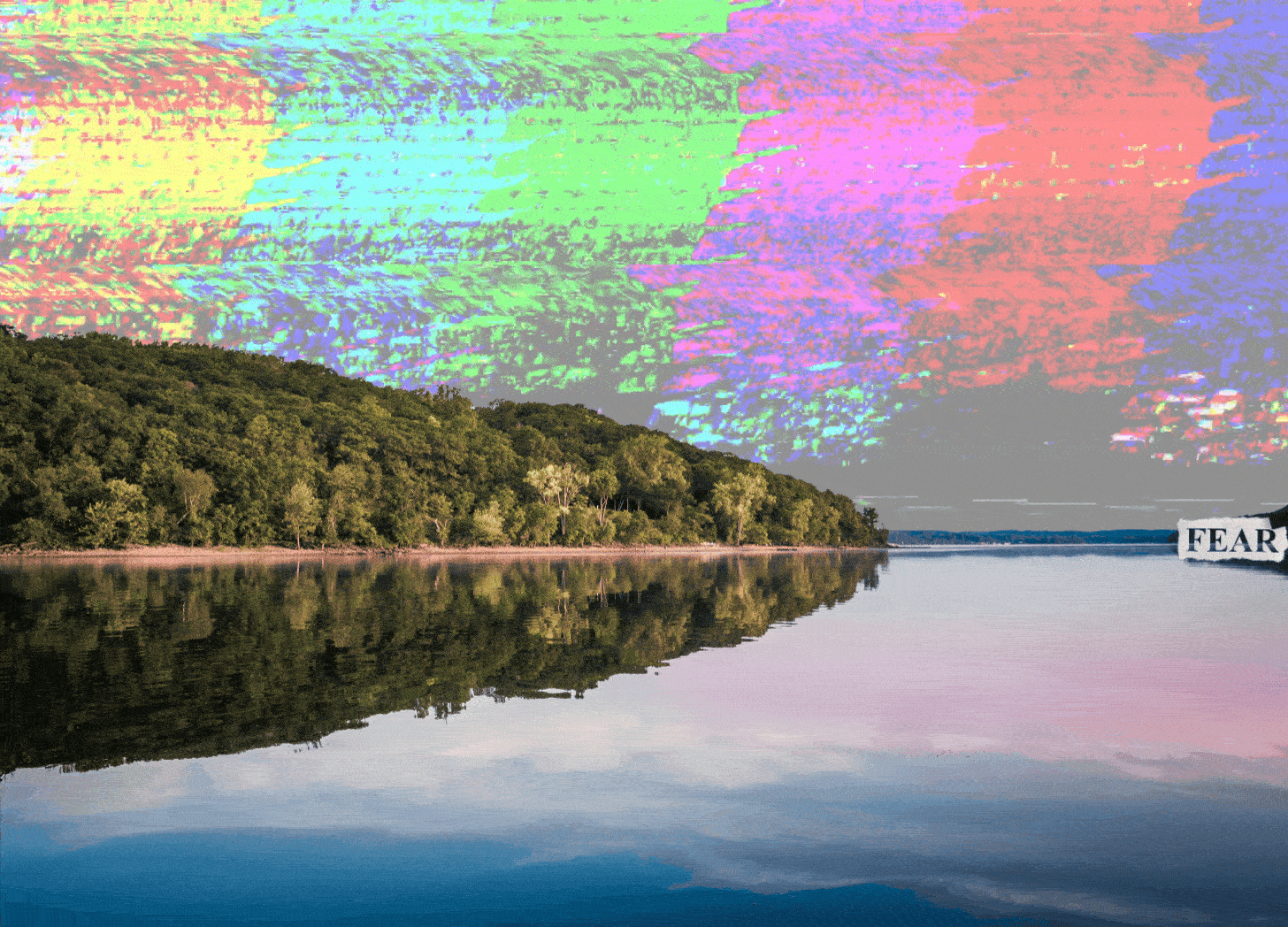The Voice in the Clearing
Some mornings I want to slip the voice out like a loose tooth and bury it in the backyard.
The creative act isn’t a lightning strike. It’s a slow dance with fear, memory, and time.
There are mornings I wake up full of fear. Not of violence or death, but of the page. Of the voice curled behind my teeth, waiting for me to spit it out or swallow it whole. Of the crooked seam I keep sewing into each day and wear anyway. It feels like I’m fidgeting at the edge of my own life, hovering. Unsurrendering.
“There is no pain in my life that has not been given value by the alchemy of creative attention,” writes Melissa Febos in Body Work. And yet the act of attention, of staying, feels unbearable. I’ve been hoarding little snippets and lines, coffee grounds and off-kilter cuts, but turning toward them, really turning, requires a breaking open I’m not always brave enough to face.
I’ve been thinking about girlhood. Not the soft pastel-filter Sofia Coppola kind, but the girlhood blasted into every living room by a 24-hour news cycle: Natalie Holloway, Elizabeth Smart, Laci Peterson. The manhunts. The soundbites. Those who never made it home. I absorbed it through dinners, the hollow car, the static TV above my dentist’s chair. A world that taught me to be afraid of being too visible. And maybe, somewhere deep, that’s the root of the resistance, that voice inside me knows what happens when a girl is made too real.
Because what else is the algorithm but a new kind of crime scene? A place where everyone is watching and no one is actually there. I think of Kitty Genovese, a queer woman stabbed to death under a Queens streetlamp while the city blinked through the windows. Her partner, Mary Ann, listened later to the myth they made of her ("no one helped") flattened into a moral fable while the truth bent quietly underneath it. The story was always less about what happened and more about how people learned to look away.
Taylor Lorenz writes in Extremely Online, “The internet has steadily changed everything around us… who we want to be.” But it’s also changed what we fear becoming. A spectacle. A girl turned soundbite. A cautionary tale in a clickbait headline.
I shrink my world until even the hallway feels far. I ghost my own hands. I avoid the thing that hums under the surface because if it’s never written down, it can’t come back to confront me. But what does that mean for the voice? The one whispering from the clearing each night? The one that still arrives, even when I don’t.
Kyle Chayka calls this “algorithmic anxiety” in Filterworld: “a vast, interlocking, and yet diffuse network of algorithms that influence our lives,” shaping not just what we consume but what we make. He writes of stepping away, suffering from “fear of missing out,” and then finding that “his creativity returned… Regaining control isn’t so hard.” I think of that often: how stepping away from the flattening effect is a first return to the self.
I had to stop writing for a while. I had to learn how to shut up. To not hide the internal inside the external. To let the river run beneath me without insisting it carry me somewhere. What I found in the stillness was not silence but a new kind of sound. Wet and root-colored, not a song exactly, but something with claws.
Elena Passarello writes, “As if every animal a human brain has ever seen, it has swallowed. We find their outlines… in mountains and in clouds.” I see it too. In sun-thick skies, in the night-blooms of the dunes and under alpine moons, in the funeral procession snaking its way around the bend, the flowering of Texas Persimmons the next morning. Memory shapes the landscape. I swallow it whole.
This is all for something. Ocean Vuong says: time to collect. Zadie Smith: time to write in other places. Anne Carson: edit, edit, edit. Cheryl Strayed: it all adds up to something. The mythology of the lightning strike has never served me. It’s never been about thunderbolts, it’s been about standing in the clearing long enough to hear what the insects have to say.
Some mornings I want to slip the voice out like a loose tooth and bury it in the backyard. Other days I carry it like a worm in my mouth. It doesn’t sing, it writhes.
Works Referenced & Inspired
Melissa Febos, Body Work
Taylor Lorenz, Extremely Online: The Untold Story of Fame, Influence, and Power on the Internet
Kyle Chayka, Filterworld: How Algorithms Flattened Culture
Elena Passarello, Animals Strike Curious Poses
Thank you for reading. If this stayed with you, a single 🫧 Lava Drop helps keep the light on.



